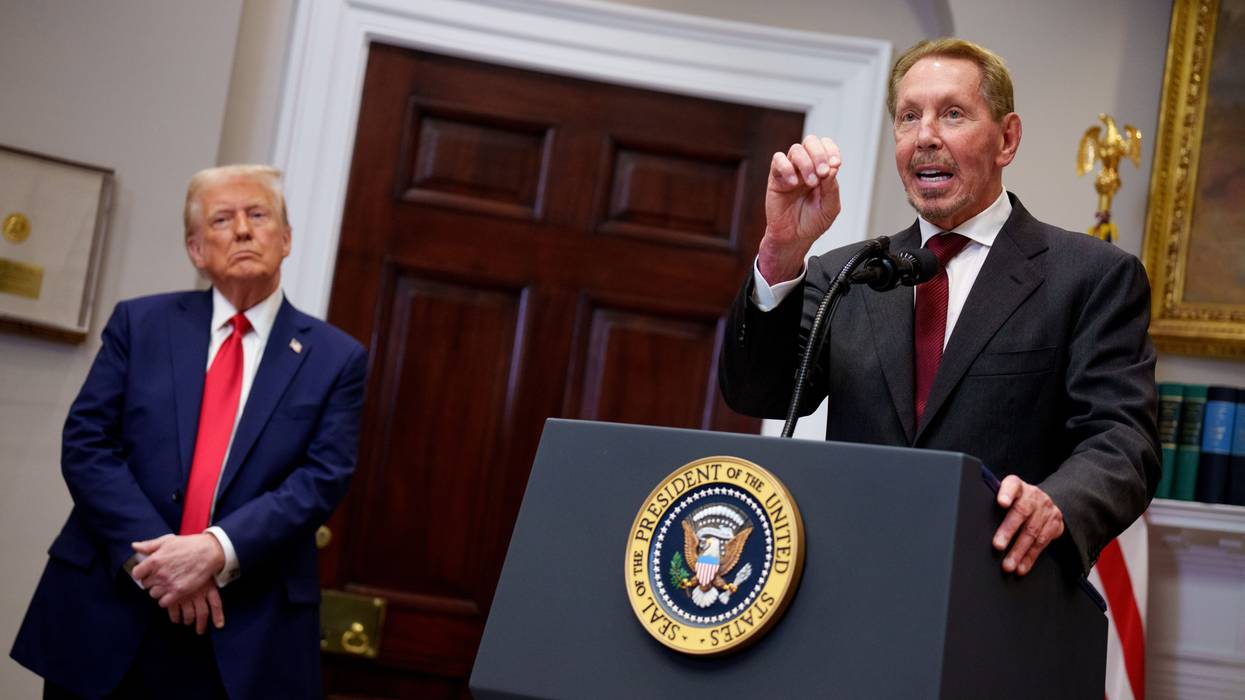Wall of Carnage: Gazans, Olive Trees, and Mosques
Pro-Israel advocates complain that younger people are being exposed to too many violent images of the Gaza genocide, but in fact the Western press underreports the death and destruction caused by the war.
In the small town of Berkeley Springs, West Virginia where I live, during Israel’s destruction of the Gaza Strip, a Democratic Party activist hung a flag of the state of Israel across the way from the only grocery town in town—so that almost every member of the community would see it.
As if to say—“we stand with the genocide.”
But it’s not just small town Democrats who are clueless.
Take DC Democrats, like former Obama speechwriter Sarah Hurwitz.
Was any of this destruction of mosques and olive trees reported in the mainstream news in the United States? Not that we could find. (If you find it, we’d like to know.)
Speaking before the Jewish Federations of North America annual meeting in Washington, DC in November 2025, Hurwitz waved her rhetorical Israeli flag in a speech that went viral on the internet, but pretty much stayed out of the mainstream media.
“So you have TikTok just smashing our young people’s brains all day long with video of carnage in Gaza,” Hurwitz said. “And this is why so many of us can’t have a sane conversation with younger Jews because anything that we try to say to them, they are hearing it through this wall of carnage. So I want to give data and information and facts and arguments and they are just seeing in their minds carnage and I sound obscene.”
Yes you do, Sarah. You sound obscene. But since this is a TikTok free zone, let’s go to the “data and information and facts” you say you want.
On January 29, the Israeli newspaper Haaretz ran an article under the headline "IDF Accepts Gaza Health Ministry Death Toll of Over 71,000 Palestinians Killed During the War."
“The Ministry’s tally includes only those killed directly by Israeli military fire in its tracking, not people who died of starvation or from diseases exacerbated by the war,” the paper reported.
This after years of Israeli officials saying the Hamas figures were unreliable, untrustworthy, and unbelievable.
And former British Labor Party leader and current Independent Member of Parliament Jeremy Corbyn pointed out the obvious Sarah—“There’s only one reason the IDF accepts this figure—they know the real number is much, much higher. Palestinians tried to tell the world. Shame on all those who discredited them. By hiding the genocide, you fueled the genocide.”
As we have pointed out repeatedly over the last year in the Capitol Hill Citizen, Israel has killed hundreds of thousands of Palestinians in Gaza since October 7, not the tens of thousands as now both Hamas and the IDF say. (See for example, "The Vast Gaza Death Undercount: Hamas Says 66,000, It’s More Like 600,000" by Ralph Nader, November/December 2025 Capitol Hill Citizen, page 30.)
As we go to press, Zeteo is publishing a three-part investigation by California surgeon Dr. Feroze Sidhwa titled "The Truth About Gaza’s Dead."
On direct deaths from violence, Sidhwa writes that “the number is likely between 120,000 and 215,000, representing 1 out of every 10 to 18 people in Gaza, but may be significantly higher. It is extremely unlikely that fewer than 120,000 Palestinians have been killed, and it is unlikely that more than 437,000 have been killed directly by US-Israeli military violence.”
Sidhwa is working on a final paper that looks at indirect deaths—deaths from unsanitary conditions, disease, lack of medical facilities, malnutrition, starvation, and exposure to the elements. Epidemiologists often use a ratio of 4 indirect deaths for every 1 direct death in such conflicts, which would place the toll much higher than current reported figures—somewhere in the neighborhood of the more than 600,000 Nader has estimated.
Nor will you see reporting on the fact that Israel has destroyed the vast majority of mosques and olive trees in Gaza.
According to Fayyad Fayyad, the head of the Palestinian Olive Council, Gaza’s olive sector is “almost completely destroyed.”
“There is no olive season this year,” Fayyad told Drop Site News. “We estimate that nearly 1 million of Gaza’s 1.1 million olive trees have been destroyed.”
In 2022, Gaza produced about 50,000 tons of olives. This year, Fayyad said, the total will be well under a thousand.
“The destruction is deliberate,” Fayyad told Drop Site. “Israel aims to eliminate the agricultural sector, including olives. What remains are scattered trees—not groves, not production.”
“The olive trees have become firewood now,” 75-year-old farmer Hajj Suleiman AbdelNabi told Drop Site. “I feel pain with every cut—not just for the loss, but because these trees are life itself. For Palestinians, they are a symbol of steadfastness. When they die, it feels like another disaster.”
According to the Gaza Ministry of Endowments, Israel has also destroyed more than 800 mosques in Gaza—or 79% of the mosques in the Gaza Strip—and completely demolished three churches. More than 150 mosques have been partially damaged.
“The targeting of mosques and places of worship by the occupation forces is a clear violation of all sanctities, international law, and human rights law,” the ministry said. The Israeli army has also targeted 32 of Gaza’s 60 cemeteries, completely destroying 14 and partially damaging 18, the ministry said.
Was any of this destruction of mosques and olive trees reported in the mainstream news in the United States? Not that we could find. (If you find it, we’d like to know.)
And what happens when a Westerner tries to bring this to light?
Let’s take the case of Francesca Albanese, the United Nations special rapporteur for Palestine.
Last year, the Trump administration placed Albanese on the Office of Foreign Assets Control (OFAC) list—usually reserved for terrorists and money launderers—six days after the release of her report that documents US corporate support for Israel’s genocide in Gaza.
It was this report—fingering as it does the powerful American corporations and institutions—including Palantir Technologies, Lockheed Martin, Alphabet Inc., Amazon, International Business Machines Corporation, Caterpillar, Microsoft Corporation, and the Massachusetts Institute of Technology—that led to the Trump administration sanctioning Albanese.
“Far too many corporate entities have profited from Israel’s economy of illegal occupation, apartheid, and now, genocide,” Albanese wrote in the report. “The complicity exposed by this report is just the tip of the iceberg—ending it will not happen without holding the private sector accountable, including its executives. International law recognizes varying degrees of responsibility—each requiring scrutiny and accountability, particularly in this case, where a people’s self-determination and very existence are at stake. This is a necessary step to end the genocide and dismantle the global system that has allowed it.”
The independent journalist Chris Hedges reports that as a result of the sanctions, Francesca’s assets in the US have been frozen, including her bank account and her US apartment.
“The sanctions cut her off from the international banking system, including blocking her use of credit cards,” Hedges writes. “Her private medical insurance refuses to reimburse her medical expenses. Hotel rooms booked under her name have been cancelled. She can only operate using cash or by borrowing a bank card.”
“Institutions, including US universities, human rights groups, professors, and NGOs, that once cooperated with Francesca, have severed ties, fearful of penalties established for any US citizen who collaborates with her. She and her family receive frequent death threats. Israel and the US have mounted a campaign to get her removed from her UN post.”
“Francesca is proof that when you stand steadfastly with the oppressed, you will be treated like the oppressed.”
“She is unsure if her book—When the World Sleeps: Stories, Words, and Wounds of Palestine—which has been translated into English and is expected to be released in April, will be distributed in the US.”
Sarah Hurwitz’s obscene narrative?
Or Francesca Albanese’s justice narrative?
You choose, America.
This article ran in the February/March 2026 print edition of the Capitol Hill Citizen. To get a copy of the print newspaper, go to capitolhillcitizen.com)


